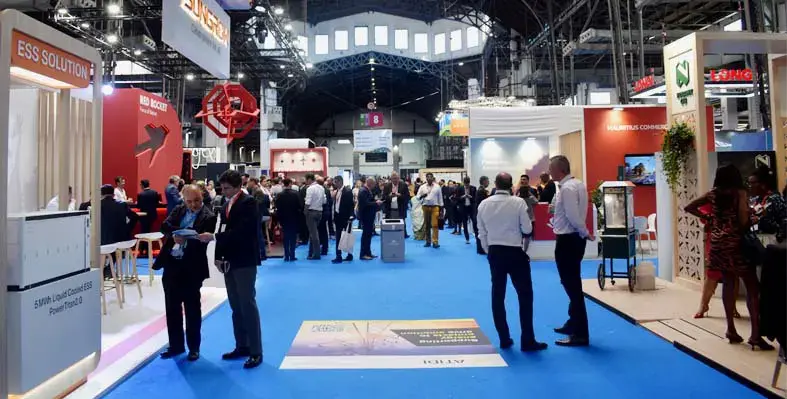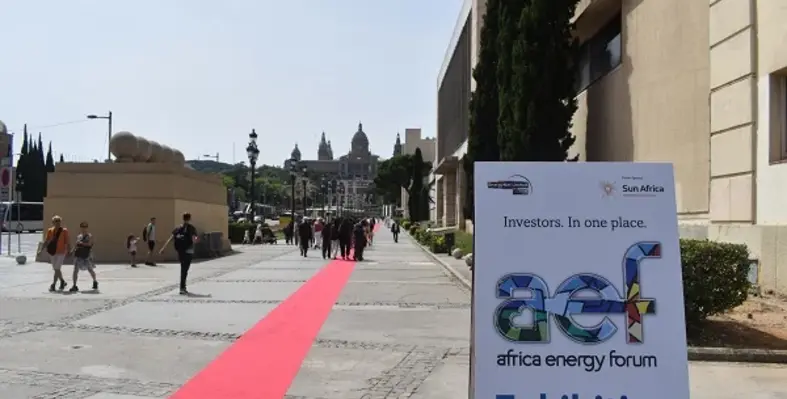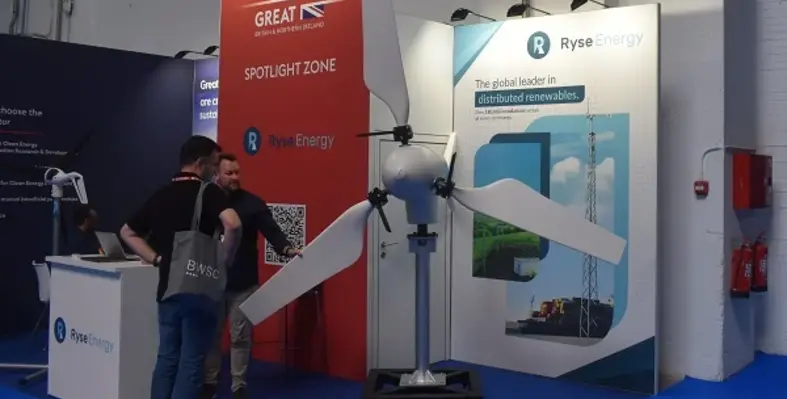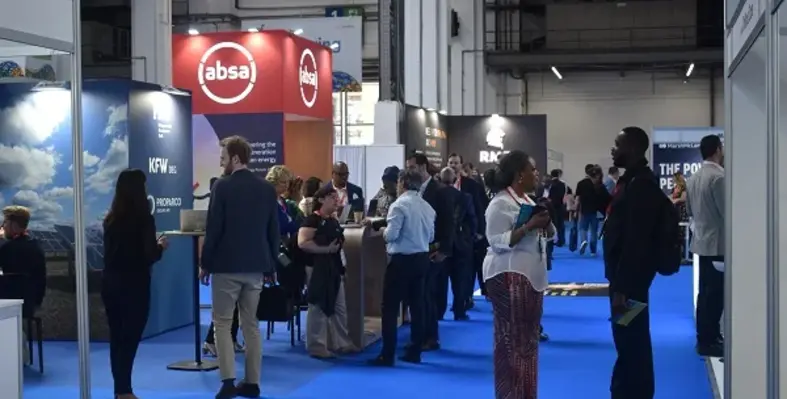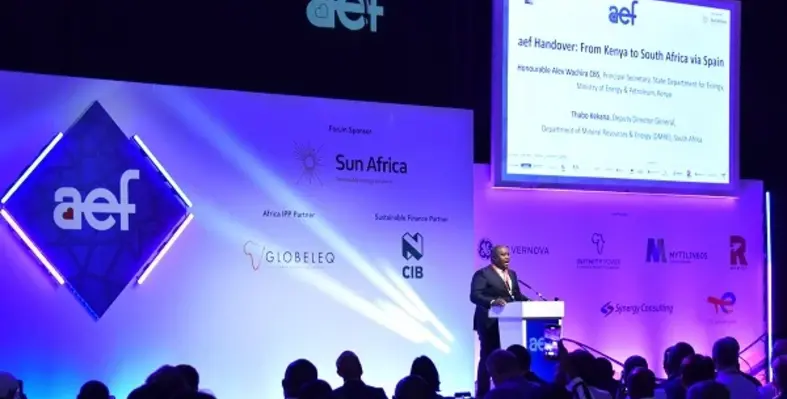Africa Energy Forum (aef) returned for its 26th year from 25-28 June in Barcelona with key African stakeholders convening to identify, debate and lay the groundwork for overcoming the continent’s pressing energy challenges and capitalise on the numerous opportunities
Adam Cortese, CEO of forum sponsor Sun Africa, took to the stage to kick off the 2024 edition of the conference with an impassioned speech around this year’s theme: ‘Energy Systems of the Future – Balancing Africa’s Needs with Global Goals’. This subject, he began, “is not just a discussion topic, but a call to action. It challenges us to innovate, collaborate and commit to a path that ensures Africa’s energy future is secure yet sustainable.”
Pursuing this line of thought, Cortese explained that chief among the continent’s development aspirations is, of course, the need to close the energy deficit. More than 600 million people in sub-Saharan Africa remain without access to reliable energy today; a key hurdle that stifles economic growth, limits educational opportunities and restricts healthcare delivery. Such a test, Cortese added, is exacerbated by the prevalence of climate change, creating a scenario where increasing access to reliable, affordable energy must be achieved in conjunction with transitioning to cleaner, more sustainable power systems.
“This dual challenge requires innovative solutions and collaborative efforts,” Cortese said. “Africa has a unique opportunity to leapfrog traditional fossil fuel-based energy systems. But make no mistake about it, expanding energy access while reducing the reliance on less environmentally-friendly resources will take incredible investment. We must realise that it is incumbent upon those countries that have primarily driven climate change through their development to help the continent achieve industrialisation through investments in clean energy. It would be hypocritical to expect emerging markets to spurn fossil fuels without offering concrete and expeditious solutions.”
Continuing, the CEO remarked that to achieve the collective goal of renewable power in an industrialised Africa, “innovation is necessary and a degree of risk is unavoidable.” Moreover, to achieve this in a diverse continent, stakeholders must think outside the box as one size will not fit all. At Sun Africa, this belief has driven executives to abandon conventional approaches and develop its own business model tailored to the specific needs of each market as well as taking on significant financial risks. “Why, you may ask. Because it is a moral imperative. We can no longer tolerate seven-year development cycles, we can no longer tolerate project announcements that do not come to bear. Closing the energy gap in Africa requires action and commitment, not endless bureaucracy and platitudes. Governments, international organisations, private enterprises and civil society must unite to prioritise sustainable energy access by aligning our efforts, sharing best practices and learning from each other’s successes and failures.”
A tale of transmission
Enhanced collaboration, Cortese stressed in his final notes, would not only help to deliver more generating assets but would facilitate investments in infrastructure. In noting this, Cortese touched on a key theme that would emerge throughout the four days – colouring speeches and delegate discussions alike – in the critical need to expand and upgrade existing grids and bolster cross-border transmission. According to Synergy Consulting, transmission remains a critically neglected segment of Africa’s energy network and received a mere 0.5% of continental energy investment over the last decade. Indeed, the aef exhibitor has noted this problem will remain a bottleneck for African countries, stifling project developments elsewhere and restricting energy access unless significant investment is committed – around US$45bn over the next eight years.
This vital aspect of Africa’s energy puzzle was also reflected in the speech of Richard Nelson, coordinator at Power Africa, in which he encouraged participants of aef 2024 to “think differently” as they engaged with other stakeholders during the week and beyond. He cited how the Africa Union has recently led by example here by finalising their Continental Master Plan. “This plan reflects African ingenuity, creativity and leadership toward an African single electricity market and ultimately universal electrification,” he remarked. “Integral to this master plan are stronger, reliable and interconnected transmission networks and the governance of regional power pools. The Continental Master Plan shows us that by enhancing transmission networks and integrating power pools, the cost of universal electrification could be cut by a third, saving in energy financing and reaching home to businesses faster than if each country were to strive for universal access independently.”
Opportunities abundant
Despite the hurdles to universal sustainable power access in Africa appearing high, so were the spirits across the conference. Jonathan Hoffman, interim CEO of Globeleq, epitomised this sentiment well by reflecting that it is currently “perhaps the most challenging time” to get deals done in Africa over the last 30 years due to high interest rates, the post-pandemic hangover, and construction for projects remaining a major issue. Yet, despite some big players looking to exit the market, he held a contrarian and positive outlook, stating, “I think it's a great time to look to be a potential buyer in this market. It's a time for the brave to hold their nerve to remain in the market and deliver, and that's what we intend on doing at Globeleq.”
Certainly, positive attitudes were found in abundance across the extensive exhibitor floor, where a myriad of companies representing the full range of the energy industry were in attendance. Participants this year included the likes of leading green technology company Envision. In Barcelona it used the stage to promote its innovative solutions such as its digital twin technology, designed to deliver optimal collaboration to improve wind farm performance through real-time response and risk aversion.
For those not aware of the company’s capabilities – which has seen it undertake projects across the continent in the Gambia, Ghana, Guinea, Côte D’Ivoire, and more – aef also provided the opportunity to reconnect with Karpowership. Ready to discuss the organisation’s primary offering in the form of its ‘plug-and-play’ Powership fleet (comprised of ship or barge-mounted, fully integrated floating power plants with flexible capacities ranging from 30MW to 470MW and utilising the latest multi-fuel engine technology), company representatives expressed their preparedness for addressing energy demands for any size and duration, while maximising the utilisation of local resources.
Ansaldo Energia was also flexing its muscles, drawing attention to its ability to meet the diverse needs of customers across the continent through its integrated model which includes the construction of turnkey power plants, gas turbines, steam turbines, generators, microturbines, support services and activities in renewable and nuclear power. This includes one of its most requested turbines on the continent – according the stand attendants – in the form of the gas turbine AE94.2 (which shared the spotlight alongside the AE94.3A). With high cycling capability, fast start up and high ramp rates, it is suitable for peak plants, grid support and dead power grid energisation and can burn non-conventional fuels such as naphtha, crude and heavy fuel oil, hydrogen rich fuels and coal gases, alongside liquid green fuels including HVO, methanol and ethanol.
Later explaining how its sponsorship of the conference underscores its commitment to supporting sustainable energy development across the continent, Trina Solar promoted its comprehensive solar solutions designed to meet Africa’s challenges head-on. This includes Vertex N modules with n-type i-TOPCon technology and 210mm product technology platform, the TrinaTracker system, and additional energy storage solutions.
There was also room for a number of first-time exhibitors at the conference. Drawing particular attention from this segment was Ryse Energy, an impact-driven, decentralised renewable energy company. At aef, the company was keen to promote its diverse range of robust, efficient and variable horizontal axis wind turbines covering the main three classifications of wind speeds. Ryse Energy has suggested that it has the most diverse range of technologies in the micro and small wind sector, ranging from 200W up to 60kW turbines. These, coupled with its solar and energy storage solutions, allow the company to offer ‘truly decentralised’ hybrid systems which are particularly suited to remote locations where diesel generators have traditionally been recognised as the only outlet. So far, the company has recorded 180,000 installations across all seven continents which have proven themselves in a range of applications from providing power in remote Ghanaian communities to functioning in a wind-to-water capacity in Kenya.
Breaking in Barcelona
Of course, no aef would be complete without a healthy amount of new deals being agreed upon and announced. Fortunately, 2024 lived up to expectations in this regard, as a number of high level deals were confirmed with a hand clasp in the Fira de Montjuïc conference centre.
This list included a strategic joint venture formed between RelyEZ and Veers Group to address the pressing energy challenges in southern Africa. The collaboration will see the two leverage their expertise, resources and technologies to develop and deploy innovative renewable energy solutions across the region, while fostering and developing local talent.
Meanwhile, Globeleq and African Trade & Investment Development Insurance (ATIDI) announced the latter’s support for the 35MW Globeleq Menengai Geothermal Project in Kenya with liquidity cover via the Regional Liquidity Support Facility (RLSF). The proposed RLSF policy will cover the risk of payment default by Kenya Power & Lighting Company and Geothermal Development Corporation for the US$117mn project that is critical to the country’s efforts to becoming 100% clean energy-dependent by 2030.
In a bid to support the expansion of energy access in West Africa, U.S. Agency for International Development (USAID) announced a US$73mn contract award to Tetra Tech, a leading provider of high-end consulting and engineering services. Through the Power Africa Empower West Africa activity, Tetra Tech experts will work with governments, development finance institutions and the private sector in order to advance the transition to more sustainable, inclusive and resilient energy sectors. In a continuation of the 10-year engagement between the two entities, the contract will see the introduction of digital tools, e-mobility solutions and capacity-building programmes to upskill local workers for renewable energy careers. Efforts will be made to design and implement national electrification programmes, modernise transmission and distribution utilities, deploy clean energy technologies and clean energy investments within the region.
At the conference, ENGIE Energy Access also used the elevated platform to announce the official start of construction for 15 solar mini-grids in Zambia’s Eastern province. Funded by the 11th European Development Fund and the European Union, the project is seen as an important step towards the realisation of the national electrification plans and is a milestone in the organisation’s target to operate 60 mini-grids across the country by 2025.
Returning home
Next year, the show returns once again to African soil, arriving in Cape Town, South Africa. This handover was officially marked at the conference by Alex Wachira, principal secretary, state department for energy, ministry of energy & petroleum, Kenya, and Thabo Kekana, deputy director general, department of mineral resources & energy (DMRE), South Africa.
“It is a great pleasure for us in Kenya to hand over the baton to South Africa,” commented the former in his speech, before noting his pleasure at seeing delegates from all corners of the African continent present at the conference and working together to ensure Africa’s enormous energy potential is realised. “We are hoping after South Africa we shall not drop this baton, and that we ensure that the convention remains on African soil and make our words count.”
For his part, Kekana added, “As we look forward to hosting aef in South Africa next year I am filled with optimism and excitement. This event will not only showcase the potential of our natural country, but highlight the significant strides we are making in transforming our energy landscape. The opportunities that [South Africa’s] energy transition presents are vast. Hosting aef and the Youth Energy Summit will provide an opportunity for us to share our experiences, learn from global best practices and obviously forge new partnerships. It will allow us to inspire and empower the next generation energy leaders who will drive Africa’s energy future. We are committed to continue with the legacy of excellence and innovation that aef represents. Together, we can build a brighter and more sustainable energy future for the Motherland.”
For now, it is up to the aef 2024 attendees to make use of the learnings and partnerships forged in Barcelona in the year ahead to build the foundations for a more promising future for the continent. Time will tell whether this has been successfully pursued, and will certainly be under scrutiny when the delegates reconvene for the 27th edition of the show in South Africa next year.







